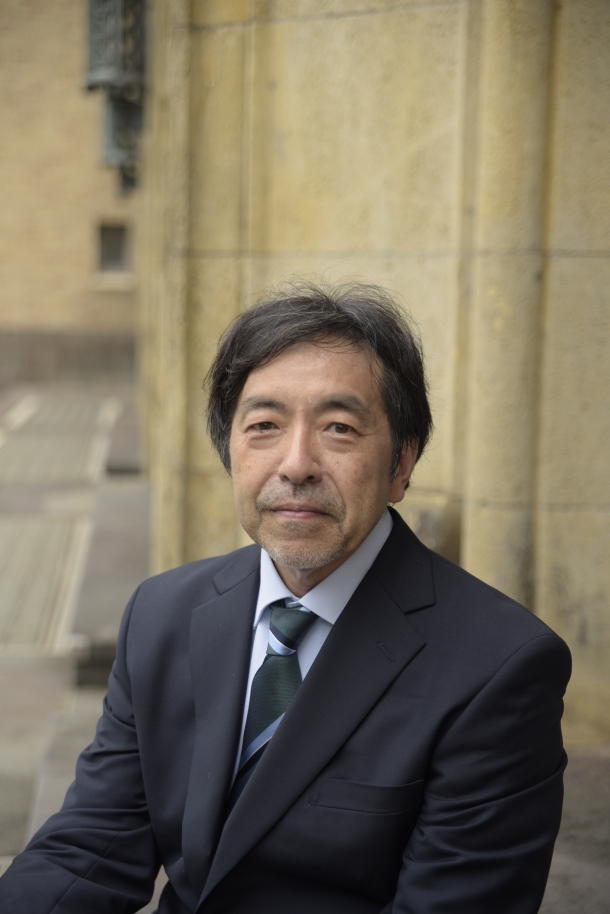- About the School
- From the Dean
From the Dean
Dean, School of Social Sciences, Yoichi Sato

The School of Social Sciences, Waseda University was founded in 1966, and ever since then, for nearly 60 years, we have developed with exploring new ways of learning within our society.
When the school was founded, we only offered an evening program for working students, but due to the changes in the working environment, we have shifted to a daytime and evening program in 1998, and then to a daytime program after 2009. In 2011, we launched the “Contemporary Japanese Studies Program”, which allows students to earn a degree by taking classes solely conducted in English. Currently, the program renamed as “TAISI” program, which continues to accept international students, primarily from Asia, around the globe. Behind the initiation of the English-based degree program, there is a rapid evolving internationalization and informatization. Seeking for a way of learning in an international society, as mentioned above, resulted in offering the English-based degree program, the mode of a program open to the world. We are constantly seeking to provide a place of learning that is leading the era through various attempts, while keeping a close eye on the current social situation.
Since its establishment, the School of Social Sciences has been based on the concept of “Synthesis of Social Sciences”. This attitude remains unchanged until today. The curriculum of the School of Social Sciences, based on traditional social sciences such as political science, economics, law, and commerce, and supplemented by the humanities and natural sciences, offers a wide variety of learning opportunities. In the past, there were few schools in our country that one faculty offered a wide range of disciplines, and “able to learn anything” was a key trait of us.
From this year, we are opening a new chapter with a modern reinterpretation of the “Synthesis of Social Sciences” and the introduction of a course system. The social issues we face today are complex and pervasive. Climate change and increasing social and economic disparities are challenges that cannot be solved within a single country or from a narrow perspective. A broad, multifaceted approach and insight is required to clarify the challenges we need to tackle. To come up with a solution towards the issues, we need to capture the depth of the challenges based on an understanding of expertise from wide variety of disciplines. In order to find a solution, we need to gather the wisdom of various people and to find a direction for problem solving method.
The course system is designed to boost knowledge accumulation, raise issues, and problem-solving skills under five major topics for contemplating contemporary society. Students study 1.5 years, to the first semester of their sophomore year, focusing on traditional fundamental subjects (minimal disciplines). Then, starting from the second semester of their sophomore year, students will be placed in one of five courses. Each course creates synergies each other and coursework takes into account social trends involves fieldwork, research, or practical projects in the real world. Students will work on their graduation thesis or graduation project in the “research project” toward the time of graduation. We will nurture human resources who will be responsible for the creation of a new society by synthesizing academic fields and considering the integration of people’s wisdom.
The Faculty of Social Sciences, Waseda University consists of the Graduate School of Social Sciences, founded in 1994, and the Institute for Advanced Social Sciences, founded in 2016. We are proud of our identity that has been exploring new ways of learning and studying by our faculty, staff, and students working together continuously. The concepts that form the essence of our identity are “Interdisciplinary, International and Practical”. Interdisciplinary refers to the superposition of the disciplines and the means to bring together and mobilize expertise from multiple fields of study, international means to conduct learning and research on a global scale, and practical means to express our attitude of valuing the firsthand experience. Our target is society itself, where the circumstances constantly changing and unexpected events always happens.
In summary, the School of Social Sciences is an active body that seeks new places to learn and new ways to study, based on the concept of “Interdisciplinary, International, and Practical”, on the basis of the synthesis of the social sciences. We welcome you to be a member of our community and start working together with us. Building No. 14, where the Faculty of Social Sciences is based, was built in 1998, and at that time it was a cutting-edge building within the university. As we approach the 60th anniversary of its founding, we would like to redesign the usage of Building No. 14 as a new place for learning and exploring new ways of academic study. Learning needs a place, and a place encourages the formation of learning. We would like to drive further the attitude of discussing, exploring, and practicing new academic discipline and the state of learning.
Let us all create a vibrant place of faculty of social sciences, Waseda University.
